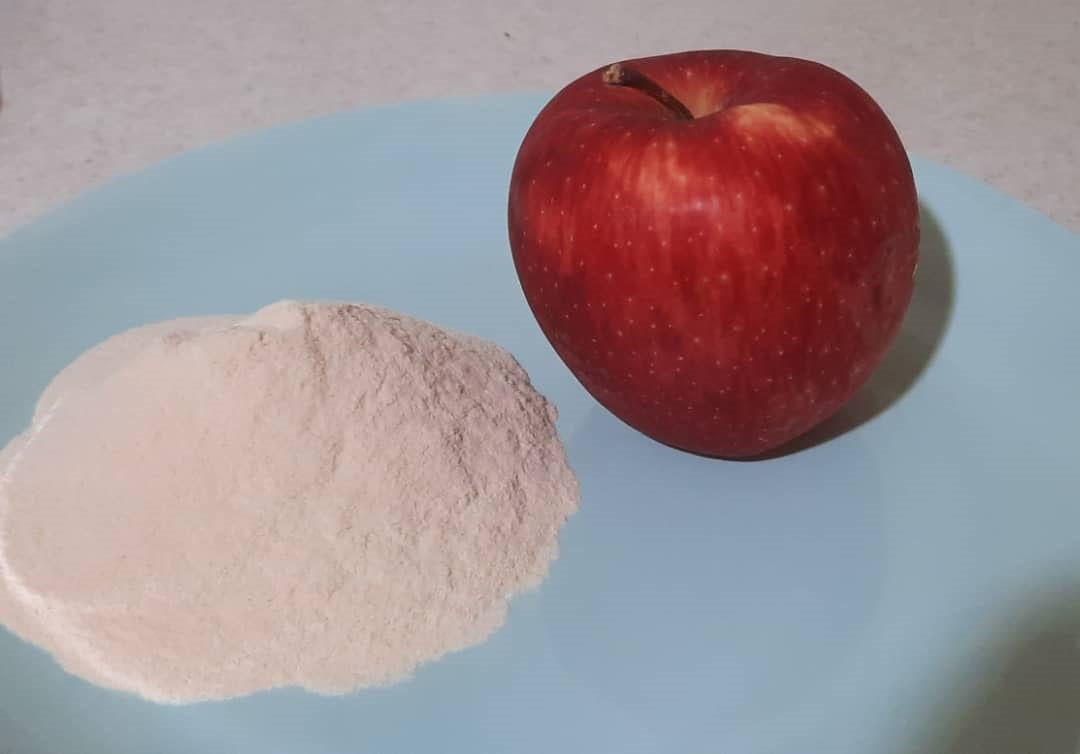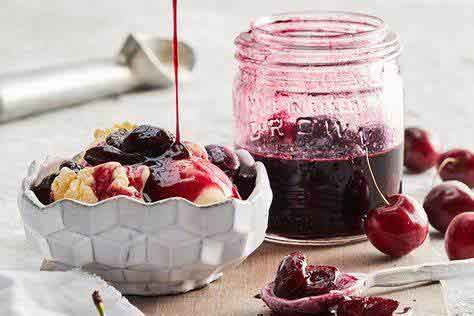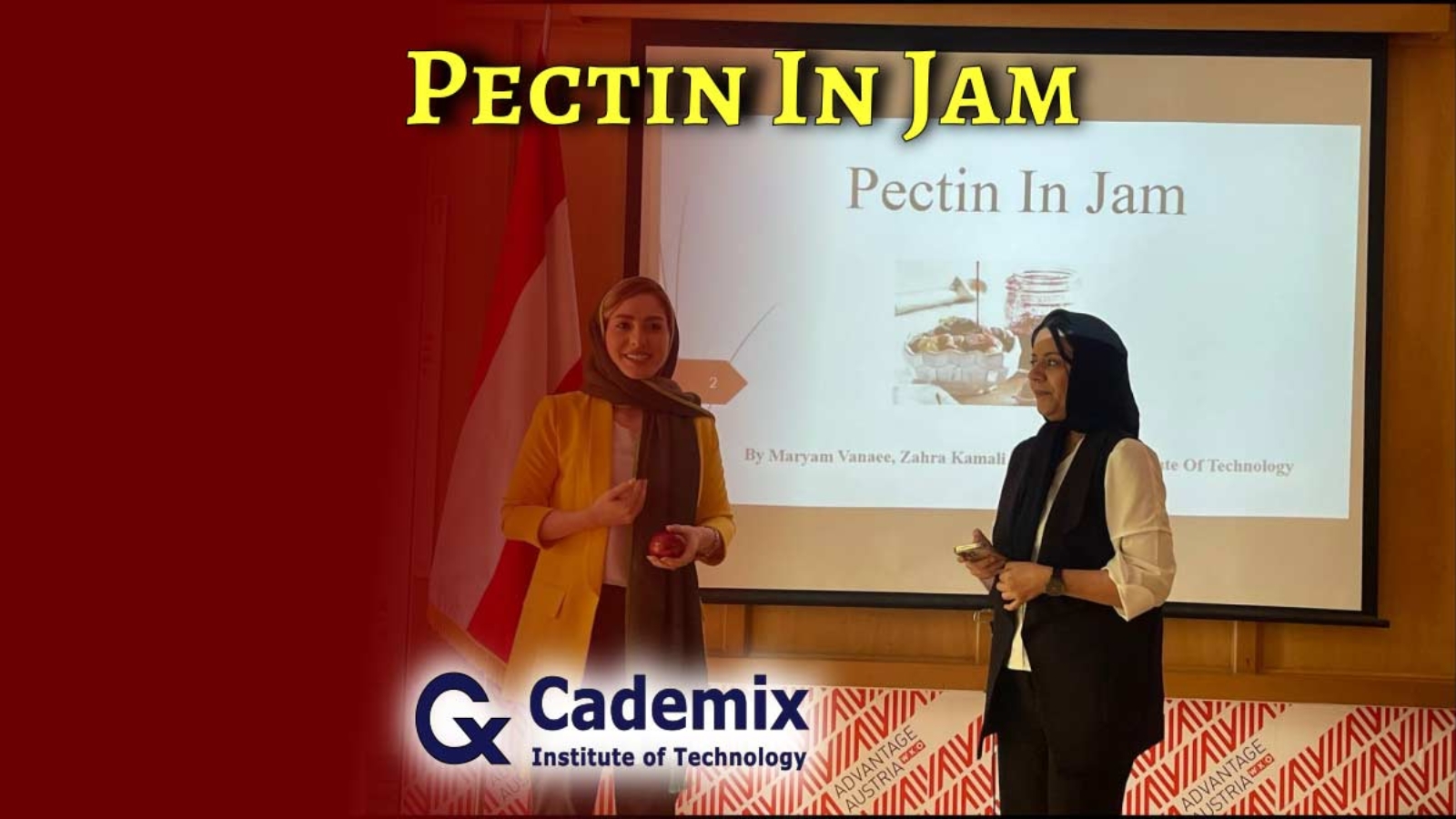Abstract
Understanding how pectin works will help you make a better quality jam, if you are looking for a tasty homemade jam. In this article, we will look at how pectin works in jams and why it is important and necessary to add pectin to jams.
By Maryam Vanaee and Zahra Kamali, Cademix Institute of Technology
The role of pectin in Jam?
Pectin is the foundation of any good jam or jelly. It is a naturally occurring carbohydrate found in plant cell walls. When conditions are just right, it helps to create a gel-like consistency by forming a network or web of bonds with other pectin molecules. The heat, the proper amount of sugar activate pectin, and it results in a good jam.

Why do you need to add pectin to jam?
As you can see, some lower pectin fruits require a pectin boost to properly set. This is especially true for many popular jamming fruits, such as raspberries and strawberries. The food industry typically makes commercial pectin by combining apple and citrus peels with dextrose to bind the ingredients together. It is safe to use and has no effect on the flavor. Whether to use store-bought pectin or make your own pectin is a matter of personal preference. A commercial pectin may help speed up the cooking process and reduce the sugar slightly. If you go the natural route, keep in mind that the cook time is much longer (which affects the nutrients in the fruits) and you’ll be adding a lot more sugar.

How is pectin activated??
When we make homemade jam, there is some science involved. Knowing the ins and outs of pectin’s operation will help you make better jam. In essence, here’s the jam-making formula:
Fruit + pectin (+ heat) + acid + sugar = jam
every component has an important rule in forming delicious jam with suitable properties. For instance, When we chop and heat fruit, we are assisting in the breakdown and release of the naturally occurring pectin found in its cell walls. Also, acid aids in neutralizing the negative ions of pectin, allowing them to repel each other less and stick to water.
Many jam and jelly recipes call for lemon peels or citric acid to help balance the acidity of the mixture. In the other hand, when we add sugar, the water molecules become attracted to the sugar, allowing the pectin chains to become cozier with one another and form a web or network that, when cooled, transforms into jelly. Sugar attracts water away from pectin and forms water-sugar bonds.
Is pectin the same as gelatin?
Pectin and gelatin are both thickeners and stabilizers, but they are not the same thing. Pectin is derived from plants, whereas gelatin is derived from animals. So pectin is suitable for vegans. Keep in mind that only pectin is suitable for canning (that is preserving foods for storage at room temperature). Many recipes call for clear gel or Jello, which are not suitable for canning jelly and jam. Recipes containing these ingredients must be refrigerated or frozen and are not examples of “true” canning. Failure to properly refrigerate or freeze clear gel recipes may result in foodborne illnesses.
How does pectin work in jam?
When making homemade jam or jelly, it’s critical to start with a dependable recipe and then strictly adhere to that recipe! While it may be tempting to experiment with the amount of sugar you add, this can result in a jam disaster. When pectin is added to a fruit mixture, it is sensitive to the amount of sugar and liquid present. Jams with insufficient pectin will be runny. If you use too much pectin, the jam will be too stiff. Because jellies thicken quickly, you must carefully measure your ingredients the first time to achieve the desired texture and consistency.
Too stiffy Jam
It is good to mention below a list of the reasons for the stiff and runny sedan of a jam and challenge:
- Too much pectin
- Cooked too long
- Cooked at temperatures that are too high
- Not enough fruits or fruit juices
- Not enough sugar
- Too much underripe fruits (which contain more pectin)
Too runny Jam
- Not enough pectin
- Not enough sugar (for HM pectin)
- Low acidity (either from the fruit content, or not enough citric acid)
- Using the wrong type of pectin
- Not cooking properly (either overcooking which breaks down pectin, or undercooking which doesn’t allow pectin to set)
Does Pectin Expire?
This is not a problem with food safety. It’s a matter of quality. If pectin is past the expiration date on the package, the product made with this pectin will not gel or work as it should. Both liquid and dry pectin are affected in this way Pectin has a shelf life, and old pectin may not gel as well. To get the best results, use commercial pectin before the expiration date.
Effect of Pectin on your health
Pectin is an indigestible natural substance found primarily in the cores and peels of fruits and vegetables. We can use pectin as a thickener and stabiliser in many commercial (think gummy bears and store-bought jams) and homemade foods (jams and jellies). Commercial pectin make from citrus peels and apples . They frequently use dextrose as a binding agent. Food and Drug Administration (FDA) recognize pectin as Safe (GRAS) in the United States, which means it can be used freely in foods. It has the highest level of approval, which means the FDA has no reservations about using it in food or beverages. On the other hand, pectin has a significant effect on our health.. Pectin may improve blood sugar and blood fat levels, kill cancer cells, promote a healthy weight, and improve digestion
Conclusion
We can find Pectin naturally in the cell walls of many vegetables and fruits. Pectin is a key ingredient in jams and jellies. That is what gives them their semi-solid appearance. Pectin comes from fruits and veggies, it is 100 percent vegan. So if you are vegetarian you can eat it with comfort.
About the authors
Maryam Vanaee with a master’s degree in chemistry in 2017 and immediately entered the related job market. She has worked as a director of research and development at a private chemical company. Her first article is about pectin extraction review . Other article is superabsorbent polymer review .She is also a member of Cademix Career Autopilot program – the acceleration program, and open to new opportunities. Please feel free to contact her:
WhatsApp:+9809379080089
Email address: maryam1370.vanaee@gmail.com
LinkedIn account: maryam.vanaee
Zahra Kamali is a professional Food-tech Entrepreneur with Bachelor Degree in Cooking and Bakery from the Iran University of Applied Science. She has about 15 years of experience as a professional Chef. And Registered and Licensed Healthy Food Manufacturer in Iran (Has the mark I.R.l.FDO / Health code151245). She is a entrepreneur and founder of the Trademark “Menipest”, founded in Mashhad, Iran. She is also a member of Cademix Career Autopilot program. Please feel free to contact her:
📧zahra.kamali2346@gmail.com
📲+989910216816
http://www.linkedin.com/in/zahra-kamali-605680223

keywords related to pectin in jam
pectin, shelf life, vegan, vegetarian, , jars, pectin in fruits, powdered pectin, liquid pectin, syrup, pectin properties, pectin structure, pectin texture, jam, pectin in different fruit, peel, fruit juice, low sugar, acid, fruit jam, no sugar, plums, canned, grape, grape jelly, batches, crushed

